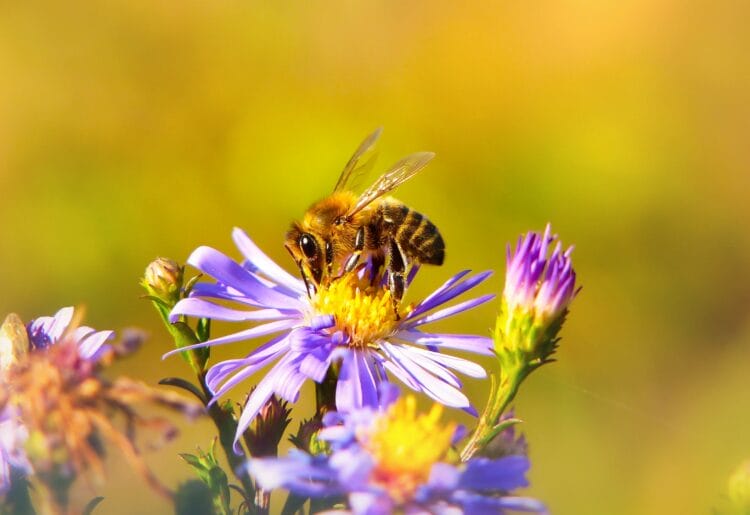AIR POLLUTION is confusing butterflies and bees and reducing pollination, scientists at the University of Reading have discovered.
The pollutants, including diesel exhausts, stop insects from sniffing out the crops and wildflowers that depend on them.
Scientists from the University of Reading, the UK Centre for Ecology and Hydrology, and the University of Birmingham found that there were up to 70% fewer pollinators, up to 90% fewer flower visits when there was ground-level air pollution.
This led to an overall 31% reduction in pollination.
The study, published in the journal Environmental Pollution, is the first to observe a negative impact of common air pollutants on pollination.
The theory is that the pollutants react with and change the scents of flowers, making them harder to find.
Dr Robbie Girling, Associate Professor in Agroecology at the University of Reading, led the project.
He said that the findings were much more dramatic than the team expected.
Dr James Ryalls, a Leverhulme Trust Research Fellow at the University of Reading, who conducted the study, said: “The findings are worrying because these pollutants are commonly found in the air many of us breathe every day.
“We know that these pollutants are bad for our health, and the significant reductions we saw in pollinator numbers and activity shows that there are also clear implications for the natural ecosystems we depend on.”
Previous studies by the Reading team have shown that diesel fumes can alter floral odours.
This work suggested that pollution could make it harder for them to locate their food – pollen and nectar.
The study, funded by the Natural Environment Research Council, used a purpose-built fumigation facility in an open field environment.
They used pollution concentrations well below maximum average levels — equating to 40-50% of the limits currently defined by US law as safe for the environment
Observations revealed that there were 62-70% fewer pollinator visits to the plants located in polluted air.
This was seen in seven groups, including bees, moths, hoverflies and butterflies.
Each year, insect pollination delivers hundreds of billions of pounds worth of economic value.
It supports around 8% of the total value of agricultural food production worldwide, and 70% of all crop species, including apples, strawberries and cocoa, rely on it.
If pollination drops, this would have a knock-on effect on food production.
Dr Christian Pfrang, Reader in Atmospheric Science at the University of Birmingham and a co-author on the study, said: “This truly cross-disciplinary work demonstrated very clearly how atmospheric pollutants negatively impact on pollination with direct consequences for food production as well as the resilience of our natural environment.”
























